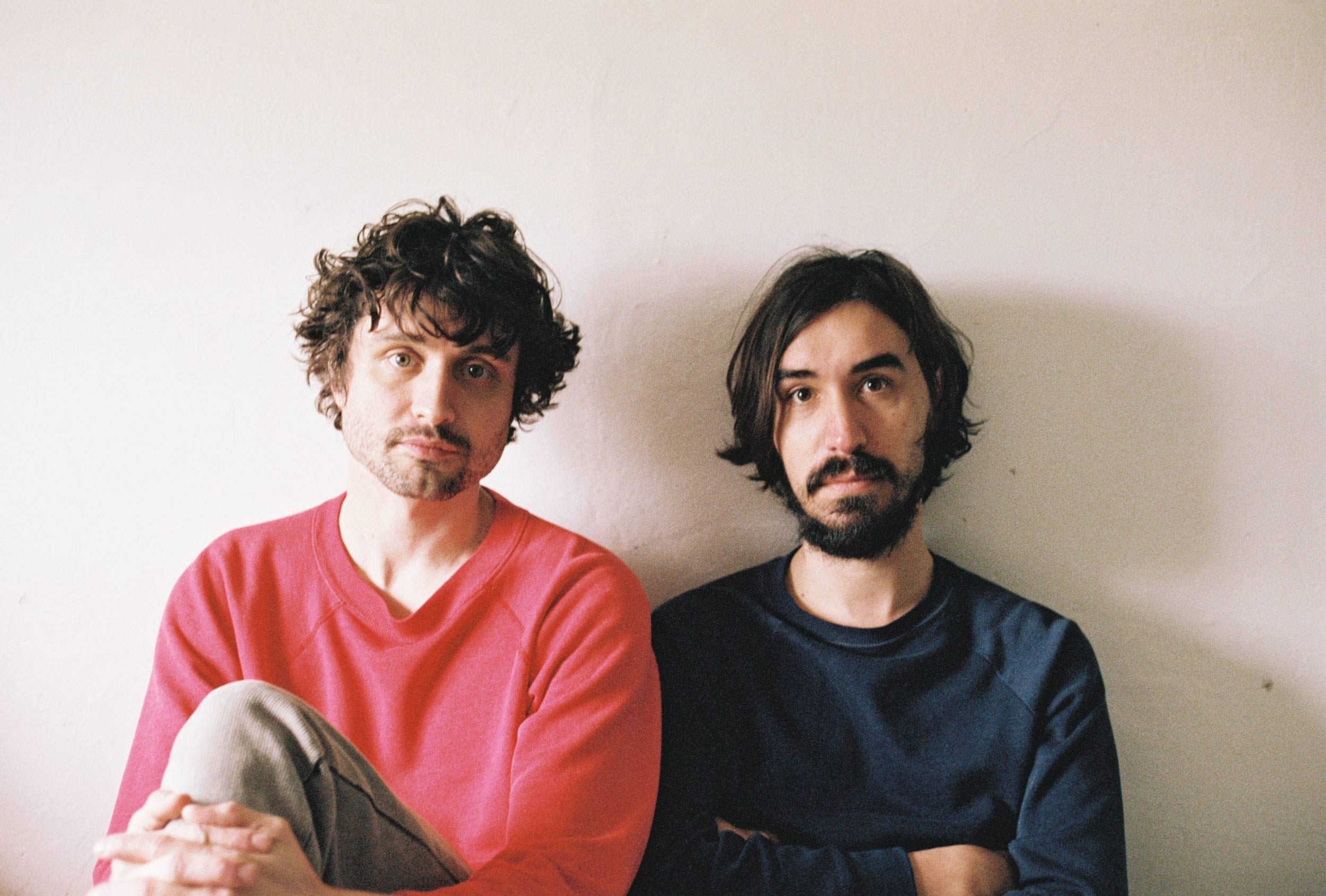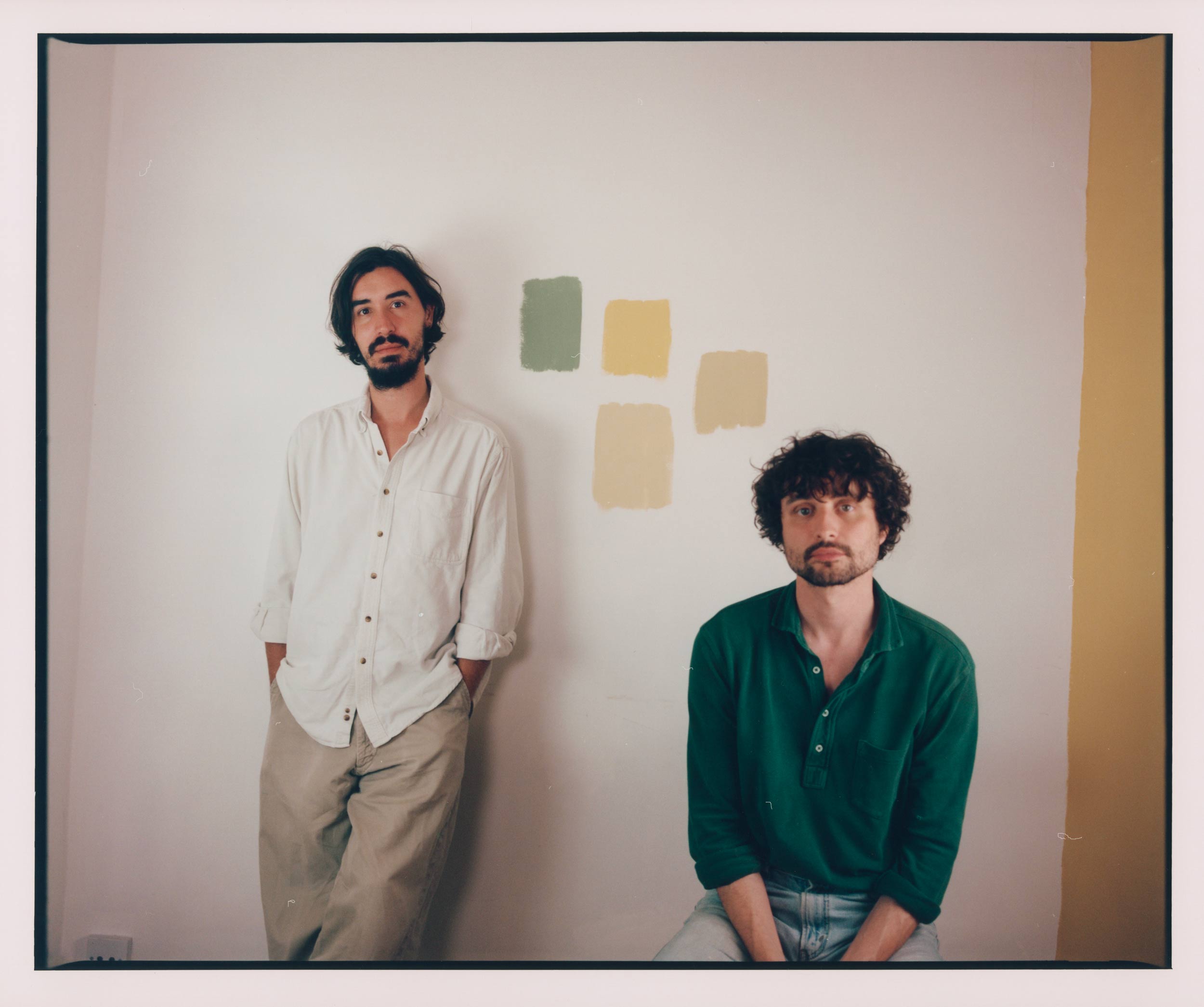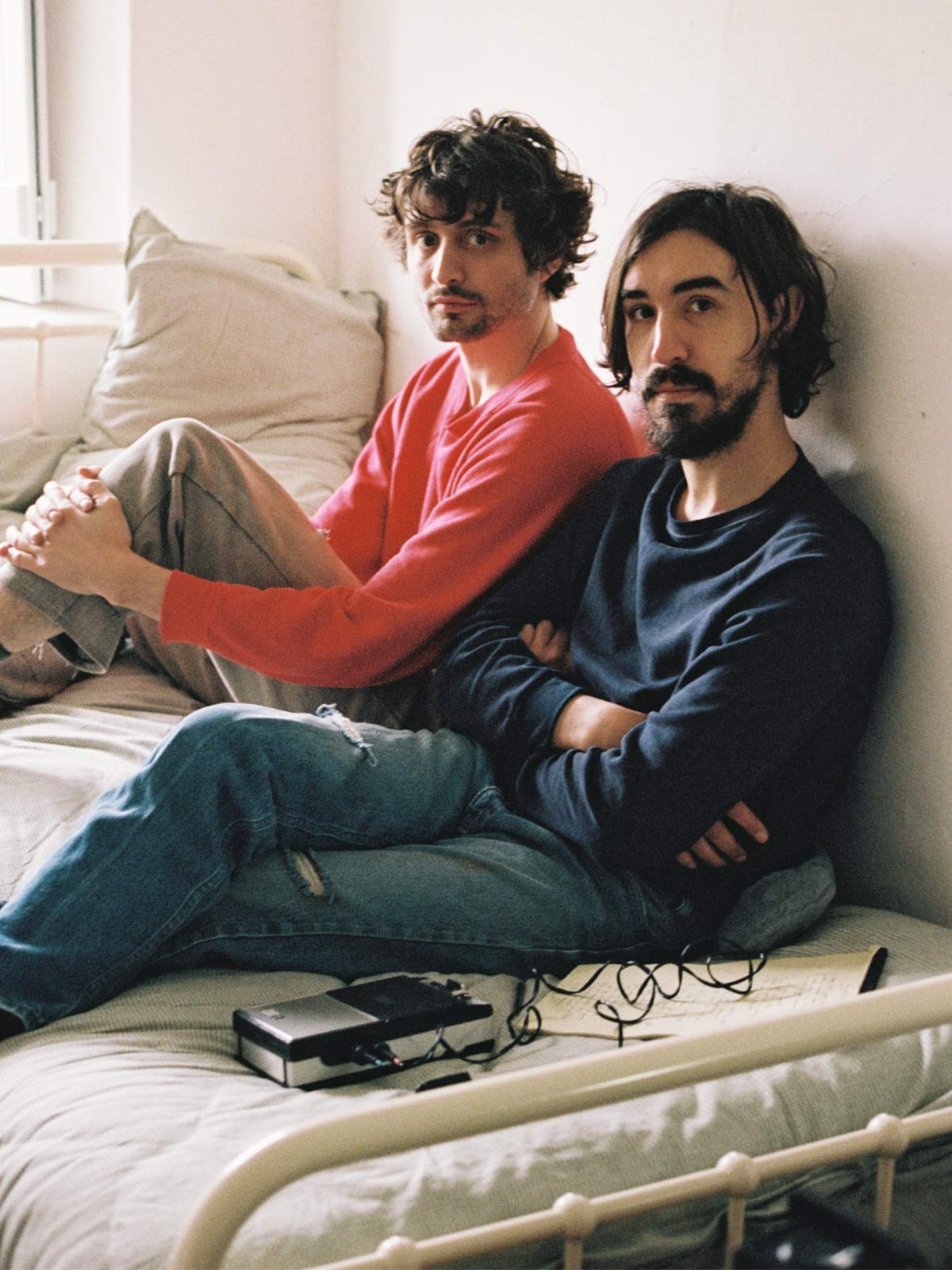The UK-based duo celebrates its 10th anniversary with a self-titled album, preoccupied with songwriting above all else
Flyte is one of the more versatile indie-alt songwriting duos to emerge from the UK in recent years. Their stylistic touchstones range from Serge Gainsbourg and the Beatles to inward-looking troubadours like Elliott Smith. The throughline is a preoccupation with songwriting as form. Composed of frontman Will Taylor and bassist Nick Hill, the band released their first full album, The Loved Ones, in 2017, followed by This Is Really Going To Hurt in 2021, which Taylor calls a breakup album. Flyte recently celebrated its 10th anniversary, and a third self-titled album will be out tomorrow.
I spoke with Taylor, the band’s lead vocalist, shortly before he took the stage at Pittsburgh’s Thunderbird Music Hall. During the call, bandmate Hill chimed in now and then over the background commotion of soundcheck. The duo was a third of the way through a tour of the US and had just wrapped a series of shows in Europe—52 over the course of two months. It’s no small feat, but Taylor describes the process as “refreshingly easy.”
Arriving at that ease took time. Over the last decade, the original four-piece band has been whittled down to just Taylor and Hill, and the pair doesn’t see that changing anytime soon. The fewer cooks in the kitchen, “the better the music gets,” says the former. One explanation for their chemistry might be their enduring friendship. Taylor and Hill have known each other since their schoolboy days, when they met in a youth theater production of West Side Story, in which Hill played Tony. “It was probably the height of my career,” he says, deadpan.
For the six months while they wrote Flyte, the pair approached songwriting like a regular day job, meeting Monday through Friday at Taylor’s apartment in Hackney, London. A kitchen nook is preferable to a traditional studio. “We have a big rule about not working in studios, because they’re normally in industrial, slightly miserable parts of town,” says Taylor. At home, there’s abundant natural light and “endless cups of tea.”
“We wanted this one to be an evolution.”
Far from the temptation of microphones, Taylor and Hill could focus solely on the songwriting. “It was about [being] absolutely finished, to the minute detail, before we went anywhere near an arrangement,” says Taylor, explaining that they deliberately avoided recording demos. The result is a more unified and coherent sound than in the band’s earlier releases.
After the writing was done, Taylor and Hill recorded the album over the course of 10 days in London’s Konk Studios; Andrew Sarlo produced in collaboration with Don Monks. Sarlo’s previous credits include Big Thief—if there are echoes of the band in Flyte, they’re in the hushed, half-spoken, half-sung delivery of lyrics in songs like “Speech Bubble” or “Even on Bad Days.”
While the band’s Lennon-McCartney influences are still detectable on songs like “Chelsea Smiles,” the self-titled album has a decidedly contemporary feel. “Tough Love,” a number about the intricacies of new relationships, featuring Laura Marling, nearly becomes a pop anthem. The chorus is spare: “Are you for real? / Tough love / Do you want to feel? / Tough love.” A delayed refrain punctuates the song’s hurrah—less a clichéd response to a complicated show of affection, and more a catch-all for ambiguity of early relationships. How do you know if a feeling is the real thing? Instead of reaching for an answer, Flyte lives in the questions.
With Flyte soon to be released to the world, the band looks forward to new horizons. Collaborations with artists like Marie Anderson, Holly Humberstone, and Courtney Marie Andrews, as well as an upcoming theater project, will keep them plenty busy. For now, Taylor and Hill are focused on enjoying the moment. Following their last album’s heavier subject matter, and the turbulent pandemic years, this project is more level-headed. “We found ourselves on the other side—you know, in happy situations,” says Taylor. “We wanted this one to be an evolution.”
“It’s the dock leaf to the nettle.”











